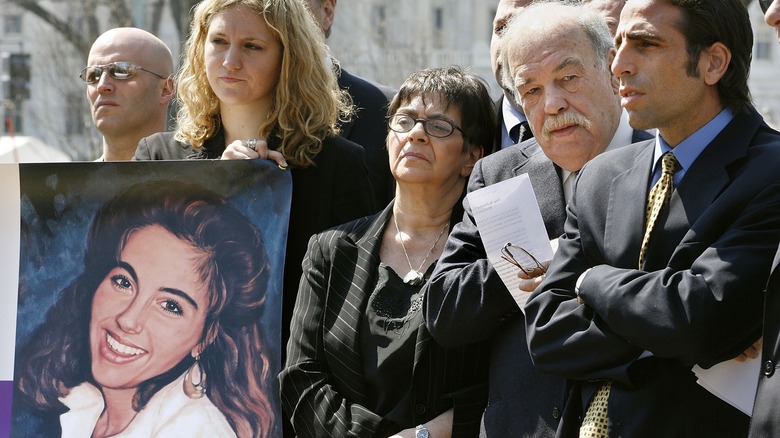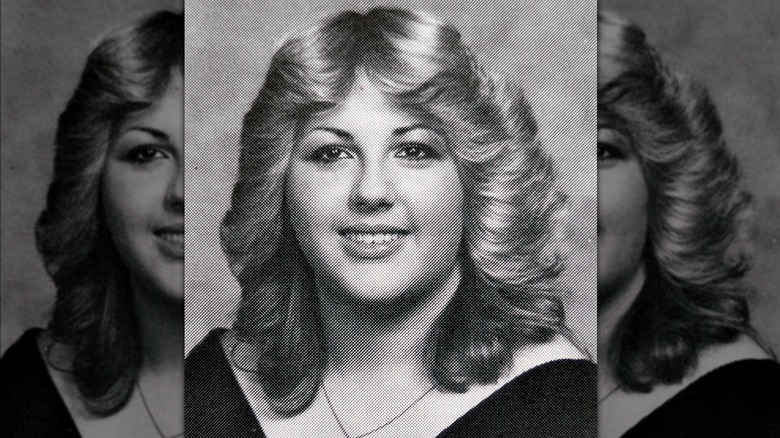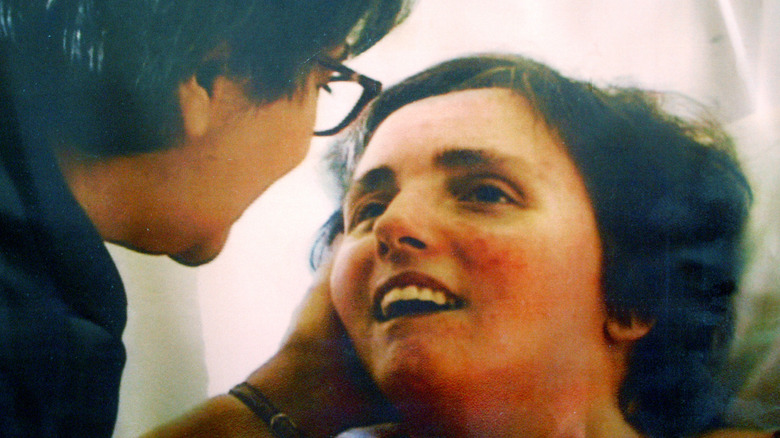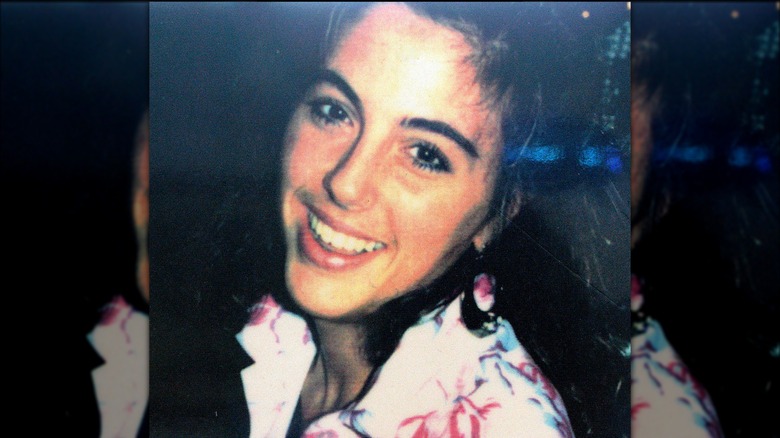Disturbing Details Found In Terri Schiavo's Autopsy
Terri Schiavo was 26 years old when she inexplicably collapsed in her Florida home in February 1990. According to her autopsy report , her husband, Michael Schiavo and her brother Bobby Schindler called 911 at 5:40 am They said they thought she was breathing and she was "making gurgling noises." Paramedics found her not breathing and intubated her within five minutes of their arrival. Her heart was in ventricular fibrillation , meaning it wasn't pumping blood through her body, and it took seven defibrillations to stabilize it. She arrived at the hospital at 6:46 am Doctors were able to save her life, but the damage to her brain was beyond repair.
For the next three years Michael Schiavo and Terri's parents, Bob and Mary Schindler, worked together to care for her and try to gain some measure of rehabilitation, but by 1993, they had a falling out, according to the University of Miami's Institute for Bioethics and Health Policy . The Schindler's and Michael's personal pain would play out in public over the next 12 years as the court cases over the fate of Terri's life became national news and sparked a nervous and cultural debate over the issues of the right to die and the right to live when you are in a vegetative state.
Michael felt Terri would not want to live that way and petitioned to remove her feeding tube and let her die, while the Schindlers fought tirelessly to keep their daughter alive, regardless of several doctors agreeing she was in a persistent vegetative state. Her autopsy confirmed that her brain was so damaged there was no hope for recovery.
The cause of Terri Schiavo's collapse is still unknown
Terri Schiavo was born Teresa Marie Schindler on December 3, 1963, in Pennsylvania where she grew up going to Catholic school and enjoyed interests including art, music, and animals, per terrischiavo.org . As a teenager, she struggled with obesity, weighing 250 pounds at one point, and had lost more than 100 pounds according to a death investigation report that accompanied her autopsy . She kept the weight off, and by all witness accounts she was a healthy eater, but it is speculated that an eating disorder was what led to her initial collapse.
Part of this speculation came from very low potassium levels found in her blood after the initial resuscitation, but the medical examiner wrote that the low potassium could have been caused my several other factors, and her dramatic weight loss was years prior to the incident so there was no real evidence proving an eating disorder caused her collapse. There was also no evidence of trauma or toxicity. All they were able to determine in the years since Terri's catastrophic medical episode is that she "suffered a severe anoxic brain injury, the cause of which cannot be determined with reasonable medical certainty."
Persistent vegetative state vs. persistent love
While Terri Schiavo's heart was beating on her own for the 15 years she lived after her collapse, she had no detectable cognitive function. Her parents, though, weren't convinced. Her mother, Mary Schindler told the Baptist Press how she remembered visiting Terri in hospice care and seeing, "her smile, the way she laughed, how she knew who I was. The way she tried to talk to me. I think of her every day — just how happy she was and she didn't have to die... She was disabled and she was a happy, happy little girl and that's how I think of her.
According to Merck Manuals , when people are in a vegetative state their eyes can still water, they can frown and smile, they may react to sudden sounds or bright lights, and they may have spontaneous roving eye movements which some families mistake as "evidence of beware." Any parent can likely relate to the desperate hope that their child would still be in there somewhere after a traumatic brain injury, and would grasp at any signs of the person they knew. As Bob Schindler said to the Baptist Press, "We would have accepted her under any condition she was in. It didn't make any difference to us. We saw so much. People said we were imagining things, but she was there and we were communicating."
Terri Schiavo's brain weighed half of what is normal
Michael Schiavo disagreed and was certain his wife would not want to continue her life in such a state. He told Matt Lauer in an NBC interview that he and Terri once agreed that if either was incapacitated, they'd not perpetuate the situation. Michael said, "Her uncle was very disabled. And he lived with his mother. And Terri said to me, 'If I ever become a burden to anybody, don't ever let me live like that.' And I said, 'Okay.
After more than a decade of court cases over whether or not to remove Terri Schiavo's feeding tube, on March 18, 2005, it was finally done. She was pronounced dead on March 31 at 41 years old.
Terri's autopsy showed that her brain weighed half of what is normal, and showed marked global anoxic ischaemic encephalopathy, meaning cerebral blood was not flowing to her brain tissue, causing "massive cerebral atrophy." There was also severe hypoxic injury from a lack of oxygen to the brain, and she had been made blind by "severe hypoxic damage and neuronal loss in the occipital lobes." While her manner of death was dehydration, Terri's cause of death was deemed " undetermined" due to doctors never being able to verify what caused her medical episode in the first place.



